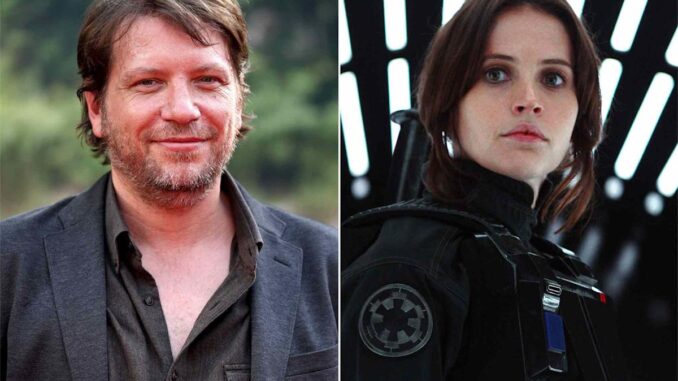
The Maestro and the Measure: Mark Hamill, Rian Johnson, and the Nuance of Star Wars
The Star Wars galaxy, for all its cosmic grandeur, often feels contained within the fervent debates of its most dedicated fans. Few contemporary chapters have ignited more passionate discourse than Rian Johnson's The Last Jedi. At the heart of much of this tempest was the perceived rift between Johnson and Mark Hamill, the legendary actor who brought Luke Skywalker to life. Yet, to reduce their relationship to a simple "beef" or to conclude that Hamill unequivocally detested the film, is to miss the vibrant, complex, and ultimately mature artistry that defines their collaboration. Mark Hamill, with the grace of a seasoned performer and the wisdom of a long-time custodian of the Force, has consistently articulated a truth far more nuanced: he calls The Last Jedi a great movie, even as he quietly admits his personal struggle with Luke Skywalker's final direction.
Imagine an orchestra, its players poised, their instruments gleaming. The conductor, Rian Johnson, steps onto the podium, his vision for the symphony unique, perhaps even revolutionary. Mark Hamill, the lead soloist, holds his instrument, a character as deeply ingrained in his very being as the air he breathes. When the music begins, the notes Johnson calls for Luke Skywalker are, to Hamill, a jarring discord, a melody that clashes with the familiar, heroic tune he has played for decades. His Luke was the unyielding beacon of hope, the boy who saw good in Vader, the unwavering Jedi Master. Johnson's Luke was a bitter, disillusioned hermit, weary of the Force, and hesitant to ignite the very spark he once carried. "I told Rian, 'Jedis don't give up!'" Hamill famously recounted, a testament not to animosity, but to a deeply felt wrestling match with a beloved character's fate. This was not a personal slight, but an artistic difference, a clash of interpretations on a canvas as vast as the galaxy itself.
Yet, a true professional, like a virtuoso respecting the conductor's baton, understands the collaborative nature of art. Hamill, while openly discussing his initial discomfort, never let it fester into resentment. He did not stomp off the stage, nor did he publicly sabotage the performance. Instead, he embraced the challenge. He delivered a performance of profound depth and vulnerability, breathing life into a Luke Skywalker he might not have personally conceived but ultimately brought to staggering reality. His "no beef" isn't a hollow platitude; it's the silent, powerful language of mutual respect between artist and director. It acknowledges that a director's vision, even when it diverges from an actor's personal preference, is paramount to the creative process. Hamill understands that his role is to serve the story, to embody the character as written, even when that embodiment is painful.
And why, then, would he call The Last Jedi a "great movie"? Because, like a critic appreciating a challenging piece of art, Hamill possesses the capacity to look beyond his singular perspective. He recognizes the film's bold strokes: its stunning cinematography, the powerful performances of his fellow actors, its willingness to dismantle expectations and push the boundaries of a well-worn saga. He sees the "dissonant beauty" of its themes – failure, hope, the burden of legacy, and the necessity of letting go of the past to forge a new future. The Last Jedi is, undeniably, a film that provokes thought, demands discussion, and refuses easy answers. Its greatness, in Hamill's eyes, lies in its audacity, its refusal to play safe, and its success in evoking a strong, even if polarized, reaction. It is a testament to its artistic ambition, even if one character's journey was personally unsettling.
The tragedy in the public discourse, fueled by an often-misinformed echo chamber of fandom, was the twisting of Hamill's honest reflections into a fabricated narrative of war and betrayal. His nuanced statements were often flattened into soundbites, stripped of context, and weaponized to confirm pre-existing biases. Yet, Hamill, with remarkable consistency, has always stepped forward to clarify, to explain, to insist that creative differences are not synonymous with personal animosity. He remains a stalwart champion of Star Wars, understanding that its enduring power lies in its capacity for evolution, even if that evolution sometimes takes unexpected turns.
Mark Hamill’s position on The Last Jedi is a masterclass in professional integrity and artistic maturity. It teaches us that disagreement is not enmity, that a personal struggle with a creative choice does not negate the broader brilliance of a work, and that true collaboration allows for both individual expression and collective vision. He didn't love what happened to Luke Skywalker, his Luke. But he loved Star Wars enough, and respected Rian Johnson's artistic courage enough, to call The Last Jedi what he truly believes it to be: a great movie, a complex and vital piece of the sprawling, ever-evolving Star Wars symphony. His example reminds us that even in a galaxy far, far away, nuance is often the brightest star.
